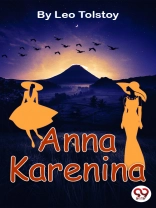Anna Karenina, a novel by Leo Tolstoy, was published in sections between 1875 and 1877 and is viewed as one of the greatest works of world literature. The story focuses on the faithless affair between Anna, the wife of Aleksey Karenin, and Count Vronsky, a young guy. Karenin cares only about his public image, and Anna promises him to be more responsible and attentive for the sake of her husband and young son but ends up being pregnant by Vronsky. After the kid is born, Anna and the baby go with Vronsky first to Italy and then, afterward, to his Russian home. She starts further trips to see her older child and becomes progressively harsh toward Vronsky. In desperation, she goes to the station, buys a ticket, and then aggressively throws herself in front of the coming train. Later, the quarrels and adventures begin.
Leo Tolstoy
Anna Karenina [EPUB ebook]
Anna Karenina [EPUB ebook]
Bu e-kitabı satın alın ve 1 tane daha ÜCRETSİZ kazanın!
Dil İngilizce ● Biçim EPUB ● ISBN 9789356568297 ● Dosya boyutu 1.4 MB ● Yayımcı Double 9 Books ● Yayınlanan 2022 ● İndirilebilir 24 aylar ● Döviz EUR ● Kimlik 8867053 ● Kopya koruma Adobe DRM
DRM özellikli bir e-kitap okuyucu gerektirir












